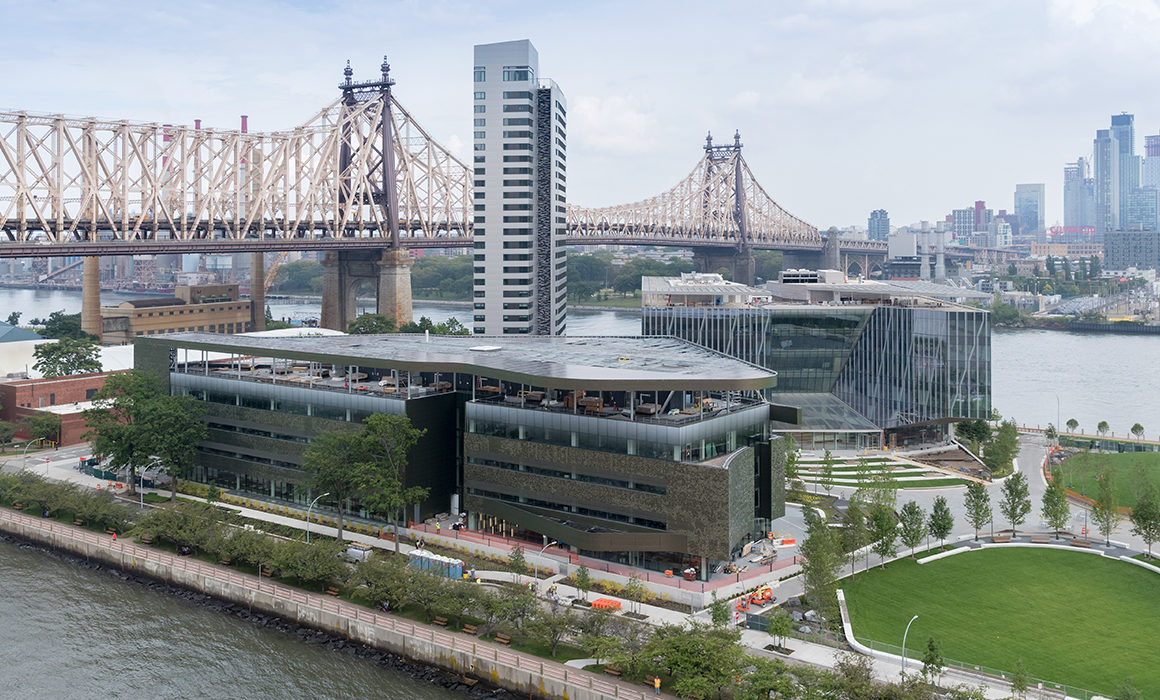Nothing’s out of reach when brilliant, entrepreneurial scientists set their minds on a common goal. The COVID-19 pandemic has sparked more than a dozen projects at the Joan & Irwin Jacobs Technion-Cornell Institute at Cornell Tech in New York City.
Pressing pause on their work-a-day projects, students, faculty, and graduates of the Jacobs Technion-Cornell Institute and its Runway Startup Postdoc Program are developing coronavirus-related initiatives ranging from diagnostic tests and therapeutics to protective healthcare gear, and help in coping with isolation and fear.
Case in point: In mid-March, just two weeks after the first confirmed case of coronavirus in New York State, Runway postdoctoral fellows Rebecca Brachman, a neuroscientist focusing on preventative psychopharmacology, and Server Ertem, founder and CEO of Katena Oncology, connected to brainstorm ways of tackling the virus. Dr. Ertem had been developing a cancer detection tool, and recognized that many concepts could be adapted to the coronavirus. So, the two developed a rapid and inexpensive test to determine whether an individual has sufficient coronavirus immunity to safely return to work.
Recent Jacobs Institute Health Tech master’s program graduate David Hachuel developed an app to help sufferers of gastrointestinal illness. Watching COVID-19 take hold, he applied some of the same principles to develop Opendemic, a COVID-19 tracing app that allows users to anonymously share their locations and disease status.
Runway graduate Niamh O’Hara, co-founder and CEO of Biotia, also switched gears. Biotia uses artificial intelligence and DNA sequencing to detect infectious disease. The company has worked for years flagging stubborn germs on hospital surfaces to reduce hospital-acquired infections. It is now performing diagnostic tests with Weill Cornell Medicine and a second lab in Brooklyn to control COVID-19. Responding to a request from New York City, Biotia also has teamed up with the health care company Vital Vio to use ozone treatment and UV lighting in sanitizing masks. And most recently, Biotia is working with Twist Bioscience, a provider of synthetic DNA, to develop research for use in detection, characterization, and monitoring of the SARS-CoV-2 virus.
Biotia is one of 28 startups created to date in the Runway Program — part business school and part incubator. Other Runway startups active in combating COVID-19include:
- OneThree Biotech has developed computational biology algorithms to rapidly predict the side effects of drugs. Their services are now being offered for free to companies developing drugs for COVID-19.
- Concertio has developed a platform to speed up computational analysis. It too is now free for specific companies seeking treatments for COVID-19.
- AwareHealth is using its AI-based mental health app to help medical professionals who are treating coronavirus patients.
- Neuralpositive develops algorithms and techniques to create personalized therapeutic music. Used in conjunction with other treatments, the therapy intends to reduce anxiety and improve recovery of patients in the hospital for COVID-19.
The civic mindedness of Jacobs Technion-Cornell Institute students starts at the top. Fernando Gomez-Baquero, director of the Runway program, serves as the technical advisor of Cured At Home. The group offers patients with mild cases a care box and telemedicine app so they can recover at home. And Wendy Ju, an Assistant Professor at the Jacobs Technion-Cornell Institute and a member of the Technion faculty, is conducting a social distancing study.
The Jacobs Technion-Cornell Institute was launched with the ambitious goal of responding to the world’s most pressing challenges with creative applied science. Inspiring enterprises like these fulfill that promise.
